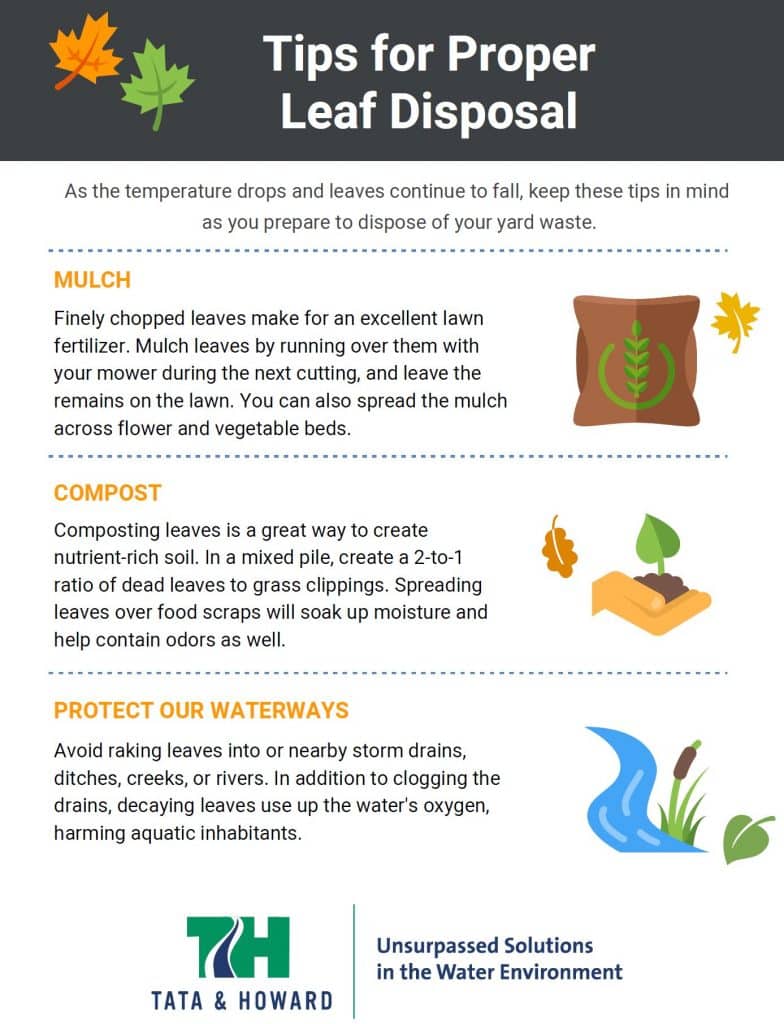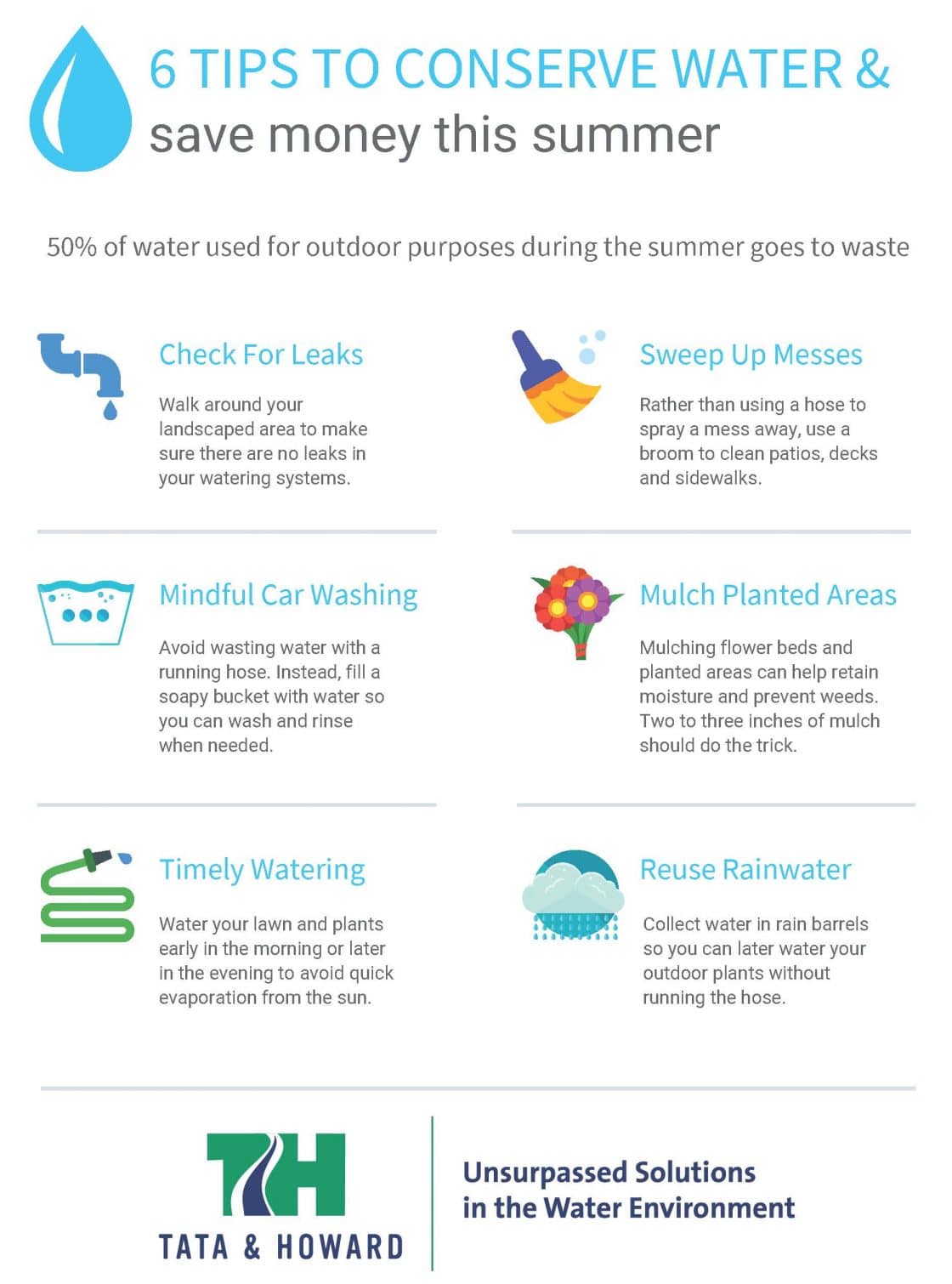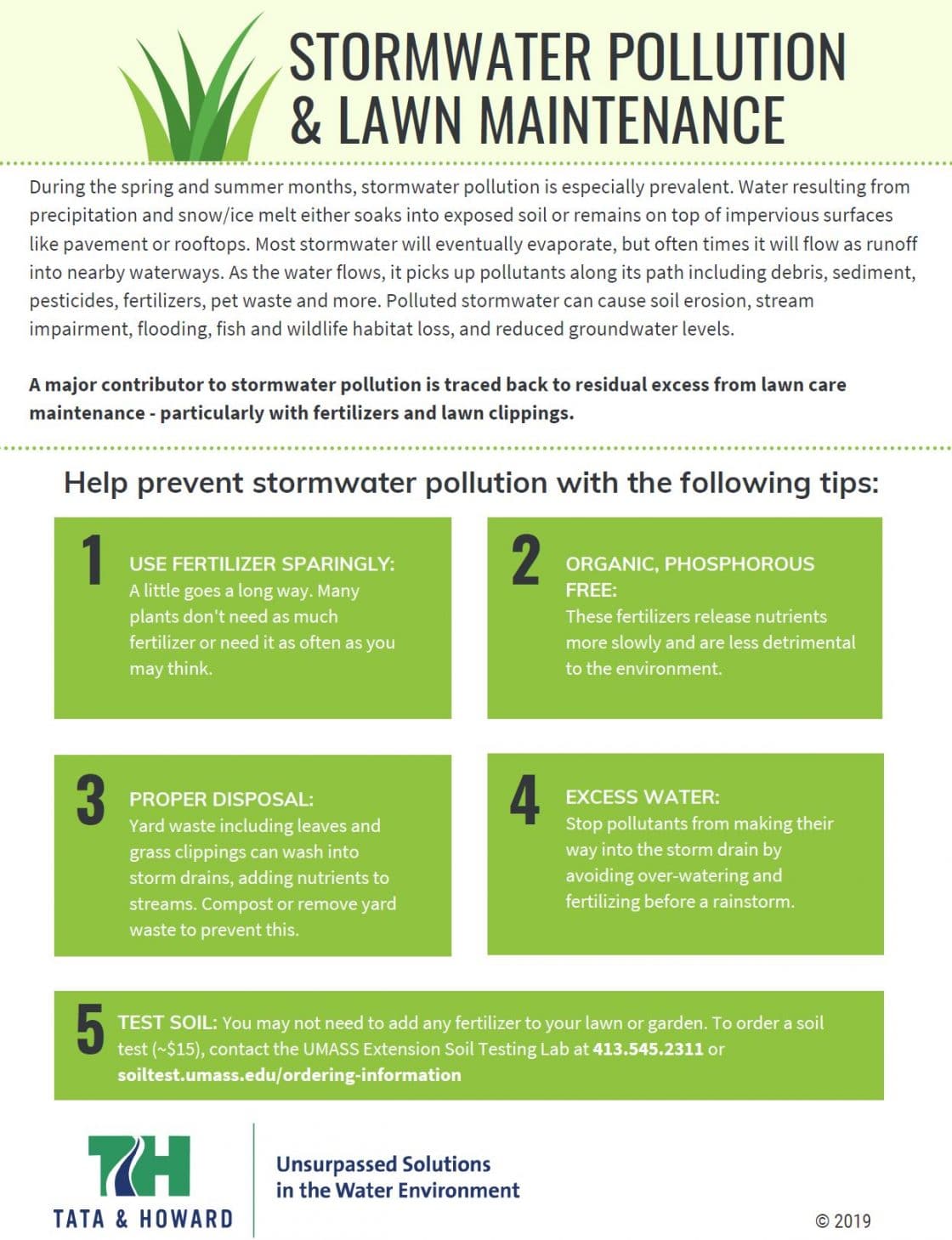The leaves have just about fallen off all of the trees! Avoid clogging storm drains with these great tips for proper leaf disposal.

Please feel free to print and share our Tips for Proper Leaf Disposal Infographic with attribution to Tata & Howard, Inc. A high-resolution pdf can be downloaded by clicking here.
Mulch
Finely chopped leaves make for an excellent lawn fertilizer. Mulch leaves by running over them with your mower during the next cutting, and leave the remains on the lawn. You can also spread the mulch across flower and vegetable beds.
Compost
Composting leaves is a great way to create nutrient-rich soil. In a mixed pile, create a 2-to-1 ratio of dead leaves to grass clippings. Spreading leaves over food scraps will soak up moisture and help contain odors as well.
Protect Our Waterways
Avoid raking leaves into or nearby storm drains, ditches, creeks, or rivers. In addition to clogging the drains, decaying leaves use up the water’s oxygen, harming aquatic inhabitants.


